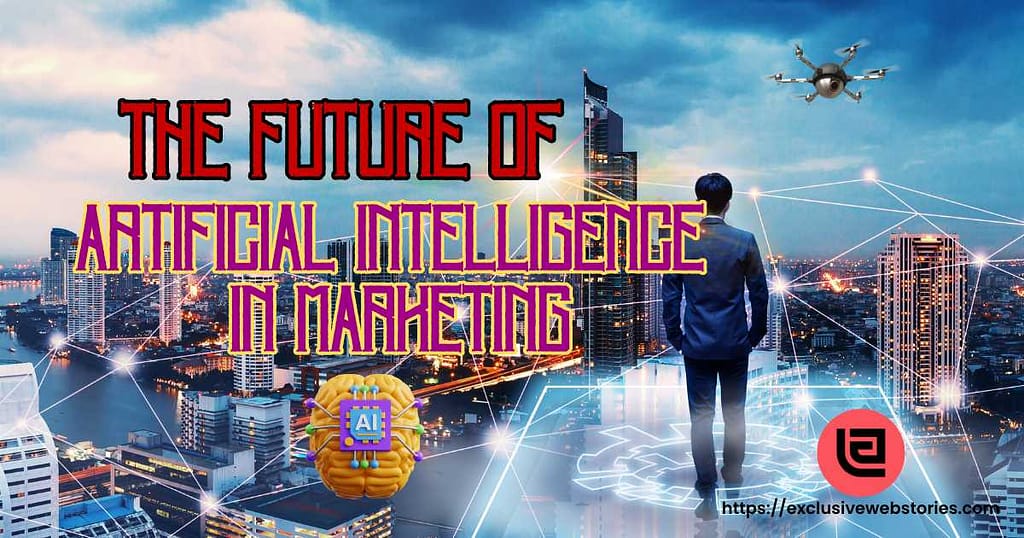Exclusive Web Stories)– Pros and Cons of Artificial Intelligence in Marketing
- In the modern digital era, companies are always looking for new and better ways to improve their marketing tactics.
- One such development is the application of Artificial Intelligence to traditional advertising and promotion methods.
- Although AI can completely alter the marketing industry, it is not without its share of difficulties and restrictions.
- In this article, we’ll discuss the Pros and Cons of Artificial Intelligence in Marketing.
Also Read
How Successful Artificial Intelligence In Payroll Processing
1. Intro
By offering actionable insights and automating a number of routine operations, Artificial Intelligence powered by machine learning algorithms has the potential to revolutionize marketing strategy.
However, before fully adopting Artificial Intelligence in marketing activities, We must weigh the benefits and drawbacks.
2. Pros of Artificial Intelligence in Marketing
2.1 – Enhanced Personalization
Artificial intelligence’s potential to provide highly customized client experiences is a major boon to the marketing industry.
Algorithms powered by artificial intelligence sift through mountains of data in search of insights about consumer habits, tastes, and demographics.
Marketers may improve conversion rates and customer happiness with this data-driven strategy by delivering more relevant information and offers to each individual consumer.
2.2 – Improved Customer Engagement
Chatbots and virtual personal assistants powered by artificial intelligence (AI) have grown and become increasingly prevalent in the service industry.
Real-time interaction with clients is made possible by these smart technologies, which can respond to questions, provide suggestions, and offer help whenever it is needed.
This improves the experience for the consumer and frees up human employees to deal with more intricate issues.
Also Read
Powerful 10 Customer Experience Implementations Of Artificial Intelligence
2.3 – Data-driven Decision Making
With the help of Artificial Intelligence, marketers can finally make data-driven decisions.
It’s capable of analyzing consumer actions, market tendencies, and rival business plans to come up with insightful advice. As a result, advertising efforts and resource distribution become more efficient.
2.4 – Efficient Ad Campaigns
By keeping a close eye on results and making modifications in real-time, Artificial Intelligence can help marketers get the most out of their advertising budgets.
This makes sure that advertising dollars are being spent wisely on the correct people with the information they need.
2.4 -Predictive Analytics
Artificial intelligence’s capacity for predictive analytics is helping businesses anticipate consumer patterns and actions.
With this kind of insight, companies can plan ahead and compete successfully.
3. Cons of Artificial Intelligence in Marketing
3.1 – Privacy Concerns
There are growing privacy concerns as Artificial Intelligence gathers and processes ever more data.
Concerns have been raised by some consumers concerning the usage of their personal information in targeted marketing. Companies must be open and honest about their data practices and follow all applicable privacy laws.
Also Read:
How to Relate Operations Research And Artificial Intelligence
3.2 – Initial Investment
Large sums of money are needed to get started with artificial intelligence marketing.
It may be difficult for smaller organizations to set aside funds for Artificial Intelligence integration, which could widen the gap between them and their larger rivals in terms of competitive advantage.
3.3 – Lack of Creativity
Artificial intelligence (AI) can analyze data and make data-driven judgments, but it can’t think creatively or grasp emotions the way people can.
Overreliance on Artificial Intelligence could have negative effects on the more imaginative facets of marketing, such as developing engaging ad campaigns or narratives.
3.4 – Technical Challenges
Maintaining and updating an Artificial Intelligence system is an ongoing process.
Disruptions to advertising campaigns as a result of technical issues or system failures can have a negative impact on client satisfaction.
In order to deal with these problems quickly, businesses require reliable technical help.
3.5 – Over-reliance on Data
If you put all your marketing eggs in the Artificial Intelligence basket, you may find yourself losing touch with the human factor.
Too much reliance on Artificial Intelligence for decision-making in marketing could have negative consequences for establishing authentic connections with clients.
4. The Future of Artificial Intelligence in Marketing

With the continuous development of machine learning and data analysis, the future of Artificial Intelligence in marketing is bright.
In today’s competitive marketing environment, success lies with companies that can find a balance between AI-driven efficiency and human innovation.
Also Read:
The Ultimate Guide To Top 10 Gym Gear
Bottom Line
In conclusion, Artificial Intelligence provides various advantages to the marketing industry, such as more precise targeting, higher levels of client interaction, and more informed judgments based on empirical facts.
However, it also has drawbacks, including the potential for lack of originality and the need to devote time and money upfront.
To be successful in marketing in the digital age, you’ll need to strike a balance between Artificial Intelligence and human-driven approaches.